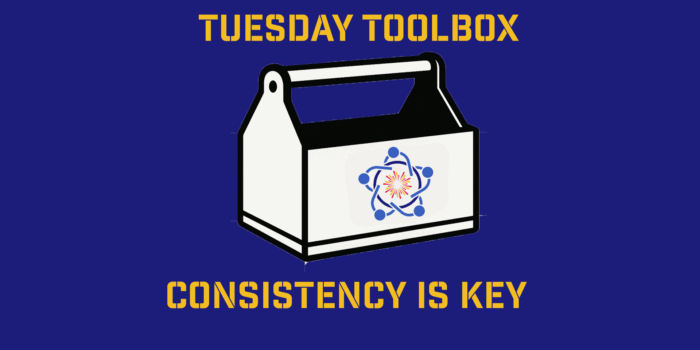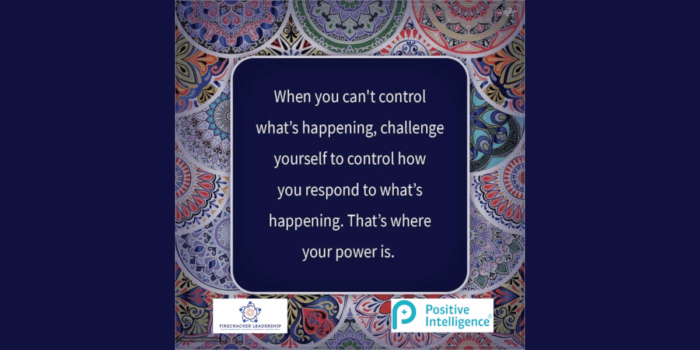My Wednesday Wish for You: Consistency A colleague of mine just won a boxing match. Another finished an Ironman. Neither…
OMG! There’s “hell yes”, there’s “hell no” and then there’s just “hell”. Just say no!
I’ve been ghosted more times than I can count. There was that time a senior leader enthusiastically offered to introduce me to the chief marketing officer of one of the largest tech firms. That never happened. There was that time I went through eight rounds of interviews with a large financial institution, and the executive search firm never called me back. And finally, there was the time a public relations firm reached out with urgency because they wanted me to host a podcast for their client. One year later, I’m still waiting to hear back about the next steps.
Ghosting is a common phenomenon in both personal and professional relationships. In a 2018 study published in the Journal of Social and Personal Relationships, 25% of participants reported having been ghosted by a partner. When it comes to job seeking, 93% of respondents in a 2020 LinkedIn poll said they had been ghosted during an active hiring process.
While it’s easy to lament being ghosted, it’s harder to admit that many of us have ghosted someone else. You promise to make a business introduction, offer to review a resume, commit to being a reference, volunteer to speak on a panel, or say you’ll provide feedback to a colleague — and you don’t follow through. As many times as I’ve been ghosted, I’ve also been guilty of not ever returning that call or replying to those repeated email attempts, because I was busy and overwhelmed, no longer interested, or just anxious about having the conversation.
Ghosting can have consequences that you may not immediately recognize — for example, you could miss out on great talent, partnership opportunities, revenue, or even your own next leadership role. Ghosting can also erode bridges in your networks, leaving others with the impression that you’re unreliable. Repeated ghosting can have a devastating impact on your leadership brand.
Here are five ways to strike a balance between managing your time and energy while at the same time following through on the commitments you’ve made.
Just say no more often.
I recently coached a friend’s brother on negotiating a job offer. He later emailed to say he had accepted the offer, thanked me for my time, and had a request. “Could you chat with my friend? I told her about how helpful you were and she could use your coaching.”
I stared at the email in my inbox for four days until finally responding: “I am glad I was helpful to you. I wish I could help your friend, but I just don’t have the time right now.” He responded back within minutes: “Are you sure? Because it wouldn’t take long and she could really use your help.” While I was trying hard to say no, I found myself in a position where I was being coaxed into saying yes. I said no one more time, wishing his friend the best of luck. I never heard from him again.
“As a leader, I have to be confident that when I say yes, I can deliver on what I have promised. And I can’t be pressured into saying yes,” executive and consultant Kimberly Lee Minor told me. She added:
One of the biggest drivers of ghosting can be when we overcommit ourselves and take on more than we can actually do. It can then be hard to admit that we can’t fulfill our promises and that we may disappoint others. Some leaders may choose silence and no longer being in communication as the easier answer, which is when ghosting ensues.
Minor wears multiple hats. She’s president of activewear company Bandier, founded her own company focused on DEI consulting, and serves as a board member. She can’t afford to overextend herself. Her simple advice of saying no can feel easier said than done. We may fear being disliked or disappointing others, like my friend’s brother, who is no longer in touch with me. But in the long run, saying no more often can prevent you from inadvertently burning bridges and damaging your personal brand.
Don’t let guilt hold you back.
I once ghosted a former coworker. My boss had enthusiastically agreed to have a networking meeting with them, but ended up cancelling the meeting at the last minute. He never rescheduled and later told me he no longer had time for the meeting. My former coworker kept emailing me to check in. I felt so guilty and never responded. I felt like I had led them to believe there was a job opportunity at my company and that my boss would help. It seemed easier to just not say anything at all.
Don’t let guilt hold you back from communicating and providing an update. In my case, I could have closed the loop with a brief note: “I know I had promised to connect you with my boss, but his schedule has since changed and he’s no longer available to meet. If I come across any openings at the company, I will keep you in mind. Best of luck with the process!”
We’ll all find ourselves in a number of situations where we still don’t have answers or a clear outcome. Maybe we haven’t been able to make a decision yet or the decision isn’t actually ours to make. Communication here is key to avoiding ghosting. A brief update provides both you and the other individual closure and ultimately relieves you of the guilt you may be holding onto.
Pay opportunities forward.
“When editors and journalists reach out to my clients for their expertise, they are generally on tight deadlines, and need a response quickly,” Sarah Solomon, founder and CEO of Publify Relations, told me. “So if you commit to doing an interview or writing an opinion piece, and you don’t follow through and ghost them, it’s likely that they won’t reach out again in the future.”
As my publicist, Solomon has coached me over the years. She advises clients like me to avoid overcommitting and ultimately ghosting by being up front and honest. If the timing doesn’t work for you, let them know. Sometimes, the other party may be flexible on timing.
If you have too many other commitments or don’t actually have the expertise the other party is seeking, pay it forward. Nominate others in your place to be featured in the article, do the podcast interview, be on the panel, or take on that consulting gig. Following this advice, I’ve created a list of trusted peers in my network whom I nominate when I know I won’t be able to say yes. I have their permission to do so and am also careful not to recommend them for unpaid work or opportunities that wouldn’t be valuable for them.
Don’t give away each other’s time.
I once had a family member I hadn’t been in touch with in a long time introduce me to someone I didn’t know over LinkedIn messages. The note said, “You need to meet Mita. She can help you with your company’s diversity and inclusion initiatives!” The person wrote back right away saying they were eager to meet me. I was mortified. I didn’t have time to meet with them. This family member gave my time away without asking for my permission. I didn’t know what to do, so I didn’t respond. I ended up ghosting the person.
When I receive unsolicited messages from individuals I don’t know, I don’t consider my silence to be ghosting because I don’t know them. But when someone I know introduces me to someone, it sets expectations that I will respond and follow through. As tempting as it may be, don’t give away someone else’s time without their permission. With team members, ensure you understand their workload and commitments before signing them up for initiatives. With those in your broader network, don’t make introductions without asking their permission first. And when this surprise introduction does happen to you, you can stop the ghosting by saying, “Hi, I wish I had time to connect. Given my current commitments, I don’t. I wish you all the best.”
Deliver the tough news.
As the U.S. heads into a possible recession, layoffs accelerated last quarter and are expected to continue into this year as companies look to control costs. Rescinding offers and implementing hiring freezes will be another lever companies will pull. As Ben Lerner, co-founder of executive search firm TheFind, advised me, leaders need to deliver tough news with a sense of urgency and not delay the inevitable:
As more companies institute hiring freezes, it’s critical that leaders update candidates who have been in an active search process. Some candidates have spent hours preparing and interviewing for a role that’s now indefinitely on pause. Ghosting them cannot be an option. Remember that you are a representative of the company, and they deserve to hear from you directly — instead of finding out the news on their social media channels.
Whether it’s a promotion or pay increase that will no longer happen, layoff decisions that need to be communicated, or a leadership training course that was cancelled, don’t put off sharing the update. Because the longer you wait, the more likely you are to ghost and not share it. And in this current economic climate, there will be more tough news to share. Accept the power and responsibility you have as a leader and put an end to ghosting once and for all.



